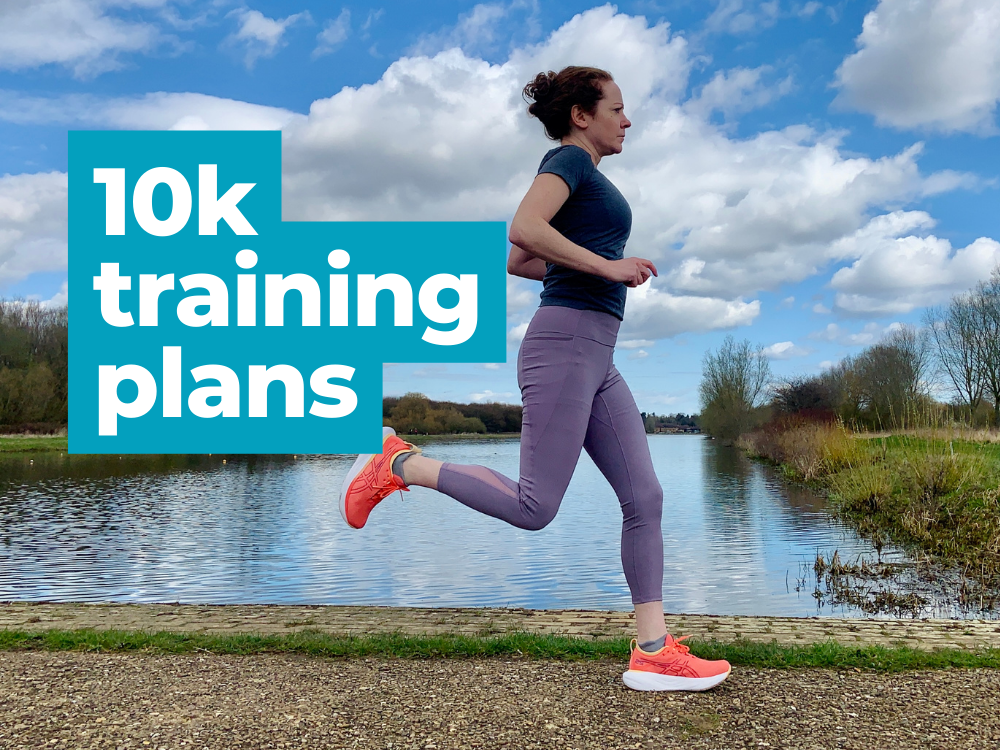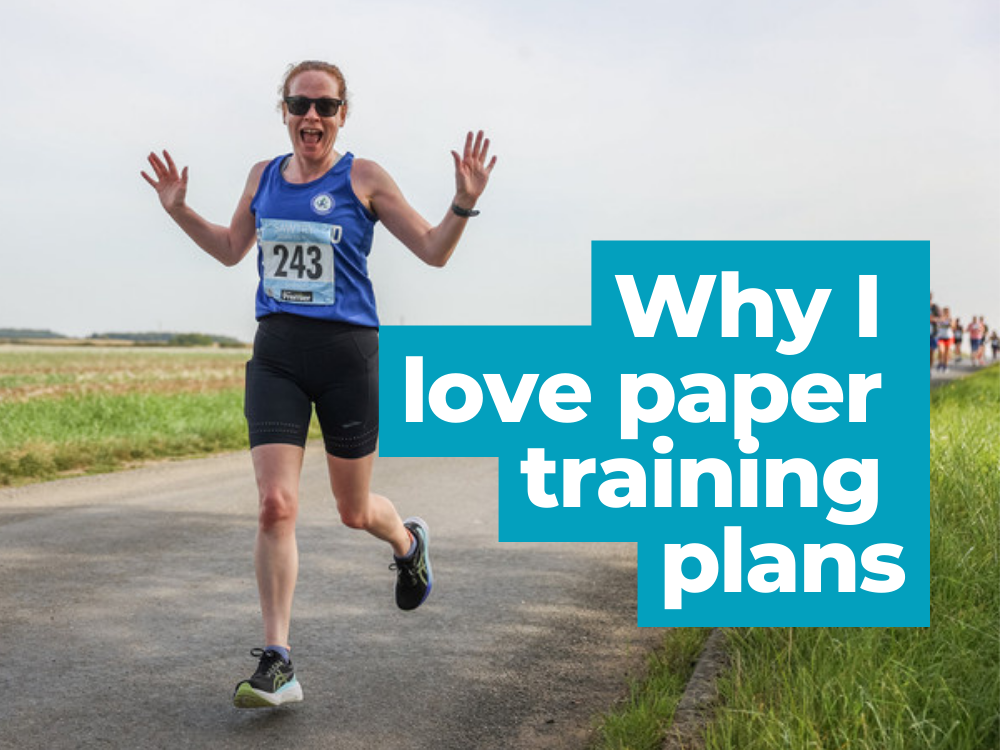Training plans are all very good, but there comes a point where you have to make your plan a reality. And that means lacing up your trainers and getting out the door.
I’ve written my own training plan for Bournemouth marathon, as I have for my past few marathons (and ultras). This time, however, instead of planning out all 16 weeks in advance, I’m planning my training on a week-by-week basis. I know the maximum mileage I want to go up to during this training cycle, where my big weeks will be and roughly the shape of each week (intervals, tempo, longer stuff and easy miles). But the volume, intensity and the days that the workouts fall on changes week to week.
There’s a few reasons for this including convenience, but it also allows me to adapt each week’s training based on how the previous week went. Legs feeling tired? Throw in a few more easy miles. Easily hitting the interval paces? Turn them up a notch. Found a race I want to do? Rearrange my days. It’s the way I work with the athletes that I coach and it works well for them, so I’m taking my own training as seriously as I take theirs.
On a Sunday, I look at how my training has gone the previous week, look at my schedule for the week ahead and plan out what I’ll do over the next seven days.
For the first six weeks of this training cycle I’ve been hitting around 30 miles per week. I ran a trail marathon as part of an ironman relay two weeks ago which has meant a couple of easier weeks recovering from that. Last week I put some speedwork back into the mix and did 5x1km reps with some friends. And today I went back to the gym to do my favourite interval session: 3x1600m at 5k pace.
It’s probably weird to have a favourite interval session, but I really like this one. It’s easy to remember and it fits neatly into my lunch break. And knowing that I’m running my 1600s about 10 seconds per mile faster than I was a year ago is a nice boost too.
So that’s six weeks of marathon training (including running a marathon) done, and 10 weeks to go. From here on I’ll increase my mileage and keep on with the faster miles, but make sure that lots of my miles are run at a nice slow, easy pace too. A lot of runners are scared to run slowly if they’re aiming for a PB, but it’s important to have plenty of easy miles in your plan. For the first few months of this year I pretty much ran at 10 min/mile pace (not slow but 1:30 min/mile slower than my marathon pace) and it hasn’t made me slower. In fact, it has made me a stronger runner.
If you’re planning your own training it’s important to have a good record of what you’ve done. I keep a record of all my runs and look back at the previous four weeks when planning my mileage. It’s easy to forget the miles that you’ve done and fall into the trap of ramping up your mileage too fast. Keep looking back as well as forward.
If you’ve missed my musings on this marathon training cycle, you can catch them all here:
UPDATES: ONE, TWO, THREE, FOUR, FIVE.







I’m getting serious FOMO for Bournmouth. A lot of the GG crew are going. Next year hopefully!
Bournemouth! spelling, oops…
I enjoyed reading this blog and thanks for sharing your thoughts. It’s interesting to hear of a method of training that’s based on body-feedback and how it feels rather than a supposed, theoretical base. I’m early on in running and training and so enjoy the guidance of a plan but your version appears much more holistic. Thanks for the blog.
Hey Andrew. I think until you learn to interpret what your body is telling you, a plan is a good idea. It will stop you doing too much and give you a bit of a push if needed. Of course, you can always amend a plan as you go along depending on how you feel.
A great read, thanks. I’m two weeks out from my first half marathon and have been following a plan. THe last couple of weeks I’ve been feeling niggly so have had to adjust my training a bit so I don’t over do it and miss the start line altogether. It’s hard to slow down though, I feel like I’m losing fitness but I figure if I wreck my body and can’t start at all, I’ll be even more annoyed!!
If it’s a choice between underprepared and overtrained, I’ll always take underprepared. good luck with your marathon.
Laura.
I’ve really enjoyed this post. I think that it’s really important to keep a diary to be able to reflect on your training later.
Definitely! We forget the miles we’ve done far too quickly. I kept wondering why my legs were tired last week, forgetting I’d run a marathon the week before.
Laura.
Interesting to read this! When creating your own bespoke training plan how do you decide what kind of sessions to have? Most plans have long run, recovery, tempo, speed… Which sessions are the most vital?
Hi Rosie
It depends on the distance you’re training for really. For a marathon – long runs and tempo runs are more important than speedwork. For a fast 5k or 10k, the long runs are less important.
Laura.